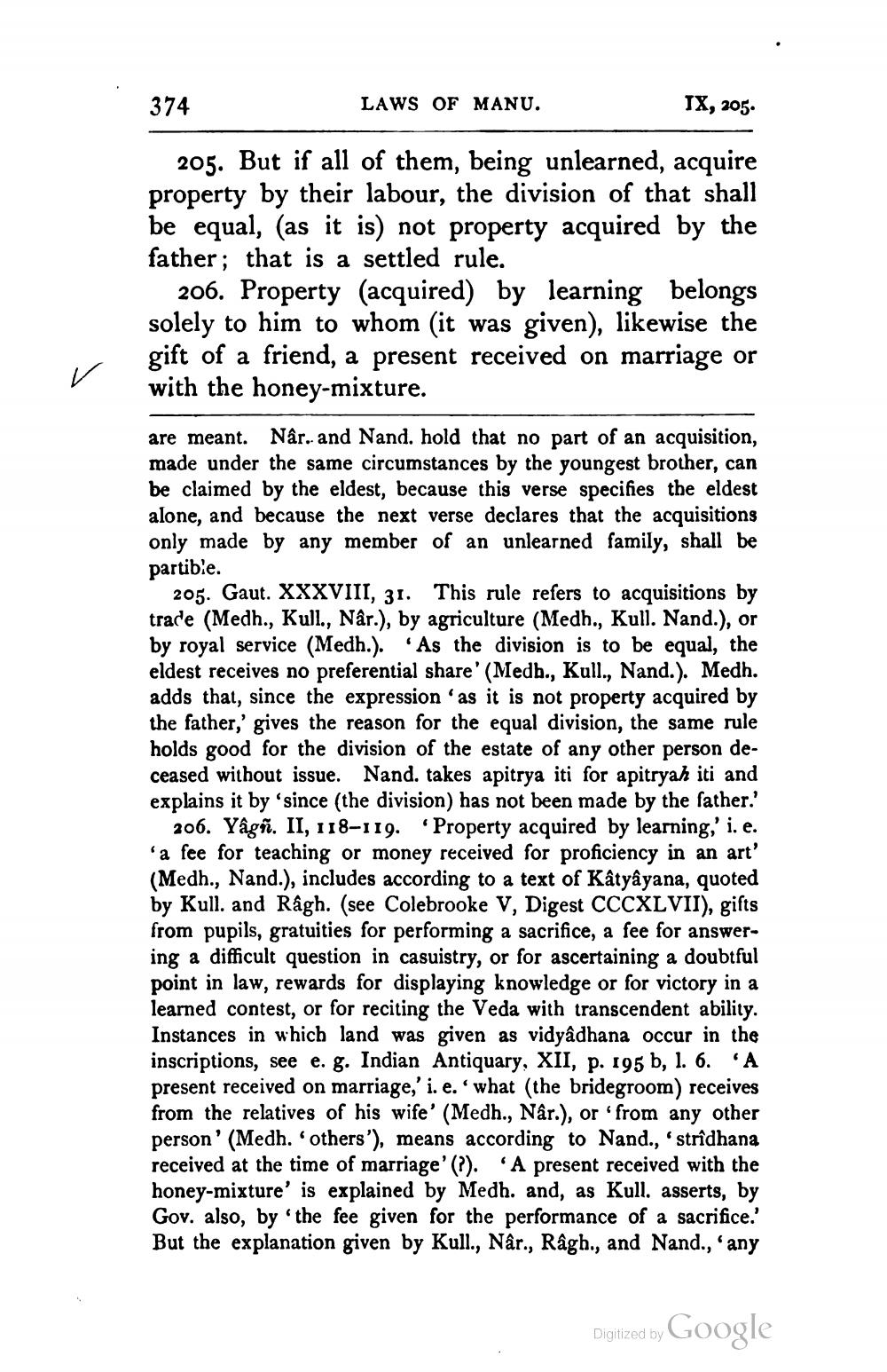________________
374
LAWS OF MANU.
IX, 205.
205. But if all of them, being unlearned, acquire property by their labour, the division of that shall be equal, (as it is) not property acquired by the father; that is a settled rule.
206. Property (acquired) by learning belongs solely to him to whom it was given), likewise the gift of a friend, a present received on marriage or with the honey-mixture.
are meant. Når. and Nand. hold that no part of an acquisition, made under the same circumstances by the youngest brother, can be claimed by the eldest, because this verse specifies the eldest alone, and because the next verse declares that the acquisitions only made by any member of an unlearned family, shall be partible.
205. Gaut. XXXVIII, 31. This rule refers to acquisitions by trade (Medh., Kull., Nár.), by agriculture (Medh., Kull. Nand.), or by royal service (Medh.). As the division is to be equal, the eldest receives no preferential share' (Medh., Kull., Nand.). Medh. adds that, since the expression as it is not property acquired by the father,' gives the reason for the equal division, the same rule holds good for the division of the estate of any other person deceased without issue. Nand. takes apitrya iti for apitryah iti and explains it by 'since (the division) has not been made by the father.'
206. Yâgñ. II, 118-119. Property acquired by learning,' i. e. a fee for teaching or money received for proficiency in an art' (Medh., Nand.), includes according to a text of Kâtyâyana, quoted by Kull. and Râgh. (see Colebrooke V, Digest CCCXLVII), gifts from pupils, gratuities for performing a sacrifice, a fee for answering a difficult question in casuistry, or for ascertaining a doubtful point in law, rewards for displaying knowledge or for victory in a learned contest, or for reciting the Veda with transcendent ability. Instances in which land was given as vidyadhana occur in the inscriptions, see e. g. Indian Antiquary, XII, p. 195 b, 1. 6. 'A present received on marriage,' i. e. what (the bridegroom) receives from the relatives of his wife' (Medh., Nâr.), or from any other person' (Medh..others'), means according to Nand., 'strîdhana received at the time of marriage' (?). A present received with the honey-mixture' is explained by Medh. and, as Kull. asserts, by Gov. also, by the fee given for the performance of a sacrifice.' But the explanation given by Kull., Nâr., Râgh., and Nand., any
Digitized by Google




